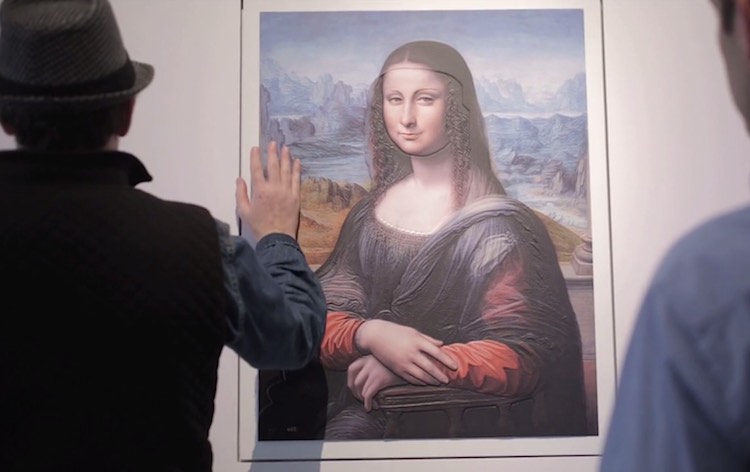Blind and other visually impaired people are finally getting to enjoy some of the world’s greatest paintings in a first of it’s kind exhibition. “Touching the Prado” turned six great master works into three-dimensional, textured reliefs that people can touch and feel at the Prado Museum in Madrid.
The paintings, including the Mona Lisa, were reproduced using a process it’s creators at Dureo Studios call “Didu.” It’s a relief printing technique that turns high resolution photos of the paintings into layered textures, defining faces, clothing, plants and other subjects in the paintings into something the blind can touch and feel.
“For me, Didu is another way to see, a way of connecting with the world of images,” a blind man named Ruben said in a video about the exhibit and process.
CHECK Out: Bike Path Inspired by Van Gogh’s ‘Starry Night’ Opens in Netherlands
“My fingers are my eyes,” Ruben said. “Everything I perceive with my fingers, all the information they gather, helps me to learn, to compose the image that up to now I couldn’t grasp.”
It takes 40 hours to create a Didu painting, layering special inks and chemically treating parts of the panels to create raised, 3-D textures. The final step requires matching the colors of the originals to give the reproductions the same look as the originals. Braille and audio descriptions accompany the works to guide visitors through the exhibit.
“The Prado Museum is (now) within everyone’s reach,” said Ruben.
(READ more, w/ photos, from Web Urbanist)




















